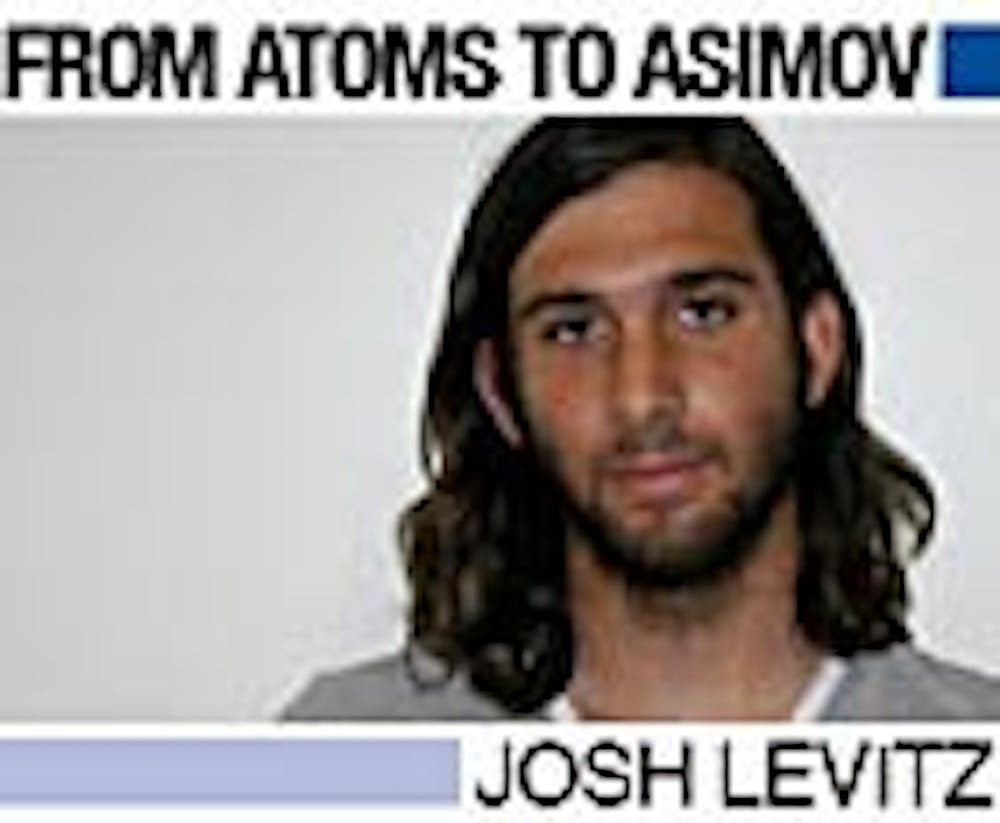It is striking to observe the narrow scope of debate in presidential politics. Even more disheartening is the lack of reference to vital science-based issues. This isn't entirely surprising, especially on the Republican side, where three candidates openly dispute evolution. However, it's still frightening given how overarching a role science plays.
Some candidates have begun to address important subjects like universal health care and poverty, but there are fundamental concerns such as nuclear disarmament and science education that politicians are afraid to touch. I'm certainly interested in science topics such as space exploration and particle accelerators, but there are some underlying matters that must be addressed in order to, literally, protect humanity.
Religion in our public schools threatens to create a generation of scientifically illiterate children without the ability to reason or value factual knowledge. Other than useless death and destruction, nothing can be accomplished without a multitude of scientific, creative, and altruistic minds; allowing religion to mold the minds of children simply does not accomplish this.
Despite this, the candidates are too terrified to appear at odds with religion, specifically Christianity, to take a stand on the need for the separation of church and state. Religion may have a place in our society, but that place is not the public sphere. Teaching the Bible as a literal, historical document is abusive, and it undermines science. The government must recognize this is a secular society that should no longer be dominated by the church.
While Republicans hardly feign interest, Democrats have attempted to toss around some vague points about their commitment to the environment. However, I am not convinced that anyone, other than outsider Dennis Kucinich, understands the level of action that must be taken to combat global warming.
In light of recent findings that greenhouse gas levels are accelerating, drastic change needs to come now. This is the time for the U.S. to join the world in limiting emissions, creating awareness and funding legitimate research into alternative energy, conservation and ecology. I hardly believe corporate-allied politicians are willing to be the ones to initiate these changes in U.S. policy.
Perhaps an issue that is most criminally overlooked is the enormous stockpile of nuclear weapons the United States has, plus the billions spent annually on their upkeep. According to the Nov. 1 edition of Scientific American, the U.S. currently possesses 9,900 nuclear weapons, of which 5,700 are ready to be deployed. Why do we need these? Politicians are not willing to address the need to reduce our stockpile for fear of being weak.
Barack Obama and John Edwards have called for stricter policy toward Russia and its stockpile to prevent nuclear material getting into the hands of terrorists. This epitomizes U.S. hypocrisy when it comes to nuclear weapons. Scientists have explained the irrational basis of nuclear arsenals, yet we're ready to destroy the earth on short notice. If candidates are really for peace, not just an end to one war, nuclear disarmament needs to be a central issue.
Other than the aforementioned topics, there are numerous issues that should be at the heart of debate, including stem cells, genetically modified foods and information technology. The failed war in Iraq, and immigration are important, but candidates argue about minor issues like abortion, gay marriage and "leadership skills," while urgent issues are ignored. The U.S. desperately needs leaders that will protect the environment without taking advantage of voters. At this point, no candidates have explicitly come out on the side of science. As we emerge from the dark days of the Bush regime, we must unite with the planet and utilize the wealth of knowledge science has given us.
Josh Levitz is a junior in the College of Arts and Sciences and a science columnist for The Eagle.




